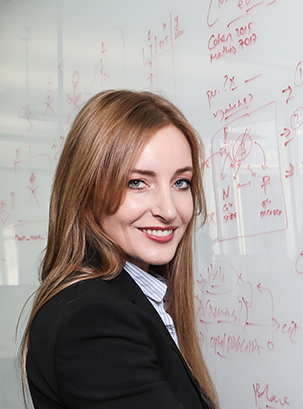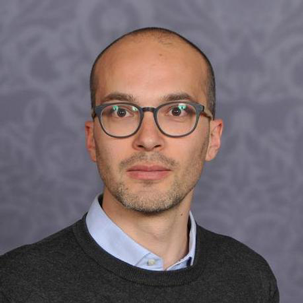Check back later for updates!
Programme for Monday, September 2nd
Opening remarks
Deep learning for modeling neural and behavioral dynamics
Mackenzie Mathis, Prof. Dr., Swiss Federal Institute of Technology, Lausanne, Switzerland. (Mathis Lab webpage)
Short Q&A with Mackenzie Mathis
Chaired by Nils Chr. Stenseth, University of Oslo
AI for evolutionary genomics: Are we there yet?
Matteo Fumagalli, Senior Lecturer, Queen Mary University of London, UK (Fumagalli's webpage)
Short Q&A with Matteo Fumagalli
Chaired by Nils Chr. Stenseth, University of Oslo
Conversation and questions with Mackenzie Mathis and Matteo Fumagalli
Chaired by Nils Chr. Stenseth, University of Oslo
Closing remarks
Kjetill S. Jakobsen, Chair of CEES, IBV, University of Oslo
ABSTRACTS AND BIOGRAPHIES
Mackenzie Mathis

Lecture title: Deep learning for modeling neural and behavioral dynamics
Abstract
To be announced.
Biography
Mackenzie Mathis is the Bertarelli Foundation Chair of Integrative Neuroscience and an Assistant Professor at the Swiss Federal Institute of Technology, Lausanne (EPFL). Mathis completed her PhD in 2017 at Harvard under the guidance of Prof. Naoshige Uchida, focusing on the neural circuits and mechanisms underlying sensorimotor learning. She was awarded the Rowland Fellowship at Harvard to start her independent laboratory in 2017, and moved to EPFL in 2020. She is a co-developer of DeepLabCut, a widely used open source software for measuring animal behavior. Research in the Mathis Laboratory focuses on mechanisms underlying adaptive behavior in intelligent systems. Specifically, the laboratory combines machine learning, computer vision, and experimental work in rodents with the combined goal of understanding the neural basis of adaptive intelligence. She is an ELLIS Scholar, a former NSF Graduate Fellow, was awarded the FENS EJN Young Investigator Prize 2022, and the Eric Kandel Young Neuroscientist Prize in 2023.
Matteo Fumagalli

Lecture title: AI for evolutionary genomics: are we there yet?
Abstract
Evolutionary genomics is swiftly transitioning into a data-driven discipline thanks to the availability of large-scale genomic data and the need to study increasingly complex evolutionary scenarios. Machine learning, and in particular deep learning, algorithms are emerging as popular techniques for population genetic inferences. Trained with synthetic data generated by efficient simulators, neural networks have proved to be useful in the inference of neutral and adaptive processes in model and non-model species by maximising the amount of retained genomic information. In this talk I will provide an intuition of how deep neural networks are typically deployed to population genetic data to infer evolutionary histories. I will then illustrate how we deployed such algorithms to learn cryptic demographic histories of admixing human populations and disease vectors. Finally, I will outline further opportunities for technological advancements in the field.
Biography
Matteo Fumagalli is a Senior Lecturer in Genetics at Queen Mary University of London. Matteo graduated in bioengineering from Politecnico di Milano (Italy) in 2011. He then moved to UC Berkeley for a postdoc position with Professor Rasmus Nielsen funded by EMBO. In 2014 Matteo returned to Europe as a research fellow with Professor Francois Balloux at UCL funded by HFSP. He started his group at Imperial College London in 2017 and moved to Queen Mary University of London in 2021. In his lab, Matteo uses computational approaches to understand adaptive evolution in model and non-model species from large-scale population genetic data. Findings from his research elucidated the link between human evolution and disease susceptibility. Matteo was elected at Fellow at the Turing Institute in 2024. He is a strong advocate of open science, ethical publishing, and inclusive education.
The Kristine Bonnevie lectures is part of the University of Oslo's Annual Festivities.